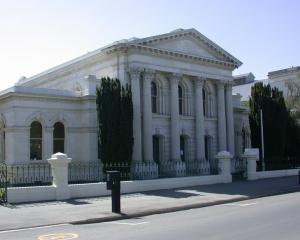
Waitaki deputy mayor Melanie Tavendale said after a full season under the Waitaki District Council’s first freedom camping bylaw, the council reviewed the bylaw.
It had considered several spots "where we could take ... non-self-contained campers" but ultimately pulled back because in other parts of New Zealand those areas quickly became over-used. However, the council received "a lot of feedback" on Gemmells Crossing and had continued to look at an exemption system to the rule requiring certified self-contained camper vans for the area.
The limited space at Gemmells Crossing could effectively work as a booking system.
"It’s probably going to cater more for locals," Cr Tavendale said.
"Because the people who have always camped there will want to camp there again and are going to be getting a heads-up through us advertising that exemptions are open.
"It’s going to be, just by default, a little bit more accessible for our locals."
Exemptions were unlikely in areas where freedom camping in self-contained camper vans was prohibited.
Before the bylaw was put in place, areas along the Waitaki district’s coast, especially at Kakanui’s Campbells Bay, had become overrun and the district’s infrastructure struggled to keep up. Cr Tavendale, who chaired the council freedom camping subcommittee which created the bylaw, said in its first year the bylaw mitigated "a lot of the main issues" the council faced. Council-approved exemptions to the freedom camping bylaw were possible last year, but only two applications were made.
The council approved both: one for an exemption to self-contained vehicles, as the campers had their own chemical toilet; and one for an extension of the three-night maximum stay.
Further, Cr Tavendale noted election promises by both Labour — a tourist tax — and National — central government rules addressing freedom camping — showed the issue was being treated seriously.
"I think it’s a real positive that it’s being discussed," she said.












